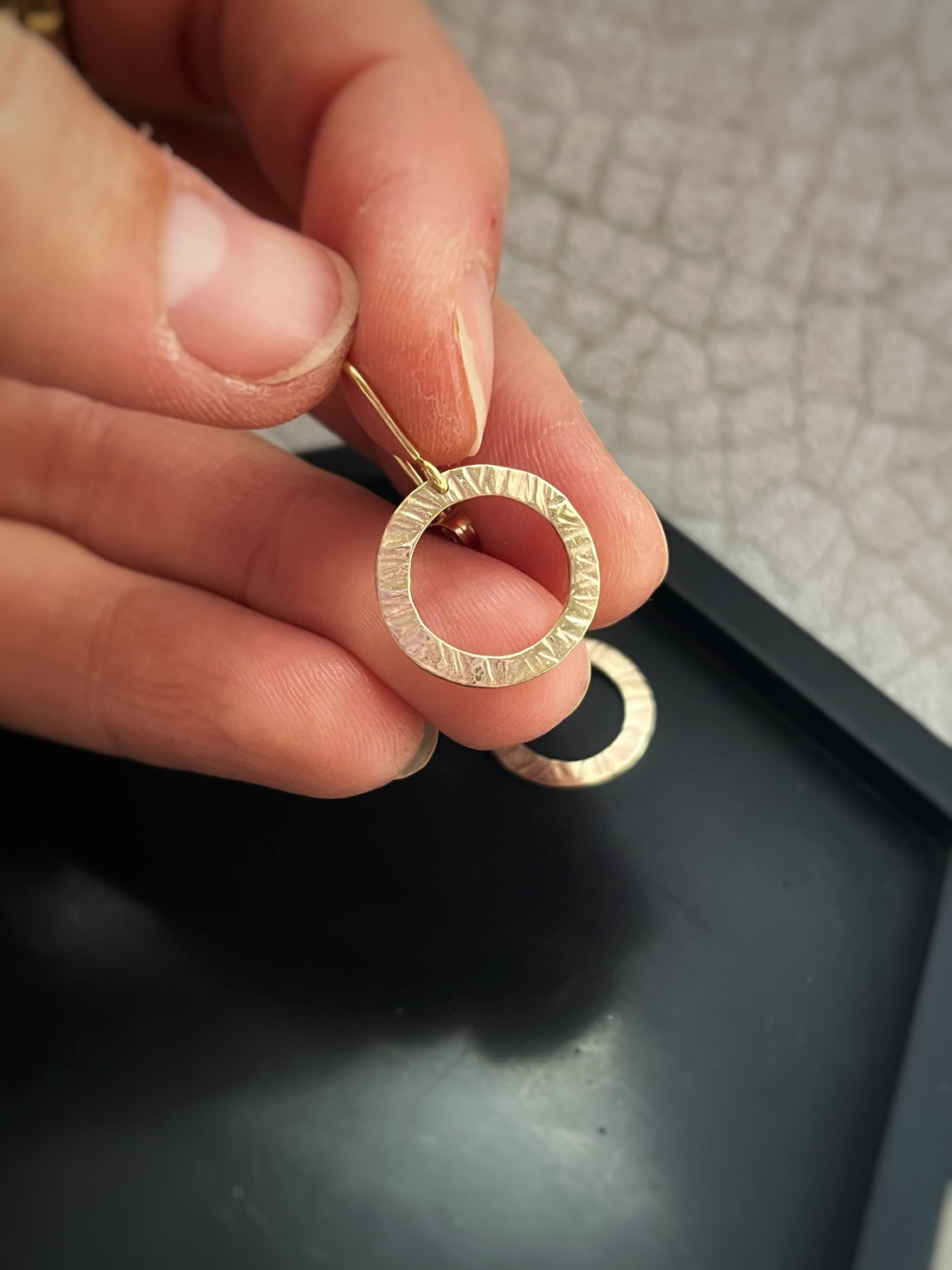
What impact do hot tubs and swimming pools have on your 9ct solid gold handmade jewellery?
There’s nothing quite like slipping into a hot tub or taking a dip in a swimming pool to relax and unwind. However, if you regularly wear jewellery, particularly 9ct solid gold, it’s important to know how the water in these environments can impact your pieces. Whether it's an elegant gold ring, bracelet, or necklace, exposure to the chemicals and conditions found in hot tubs and swimming pools can lead to some unexpected and undesirable consequences.

1. The Composition of 9ct Solid Gold
To understand how hot tub and pool water affects your jewellery, it's helpful to first know what 9ct gold is made of. Unlike pure 24ct gold, which is too soft for everyday wear, 9ct gold is an alloy. It consists of 37.5% pure gold and 62.5% other metals such as copper, silver, or zinc. This alloy is what gives 9ct gold its durability and strength, making it more resistant to scratches, dents, and wear.
However, it’s these additional metals that make 9ct gold more vulnerable to damage from external factors, including exposure to water and chemicals found in hot tubs and pools.
2. How Hot Tub Water Affects 9ct Gold Jewellery
Hot tubs are known for their high temperatures and the use of chemicals like chlorine and bromine to maintain clean and safe water. These factors can take a toll on your gold jewellery in several ways:
a) Chemical Reactions
Chlorine is a potent chemical used in most hot tubs to kill bacteria and algae. While it’s great for maintaining hygiene, it can be harsh on metals, particularly gold alloys like 9ct gold. Over time, chlorine can cause a chemical reaction with the metals in the gold alloy, leading to:
-
Discoloration: Prolonged exposure to chlorine can cause 9ct gold to develop a dull, tarnished appearance. The gold may take on a darker, more brownish tone or lose its lustre altogether.
-
Weakened Structure: Chlorine can corrode the non-gold metals in the alloy, weakening the overall structure of the jewellery. This can make the metal more brittle and susceptible to breaking or bending.
b) Heat
Hot tubs are typically maintained at high temperatures (between 100°F and 104°F). Heat accelerates chemical reactions, meaning that the higher the temperature, the faster the chlorine or bromine will interact with the metals in your 9ct gold jewellery. Heat can also cause minor warping in gold alloys over extended periods.
3. Swimming Pools and 9ct Gold Jewellery
Swimming pools, while not as hot as hot tubs, also contain chlorine or other sanitizers like salt or bromine, which can damage gold jewellery.
a) Chlorine in Pools
Just like hot tubs, swimming pools are treated with chlorine to prevent algae and bacteria from growing. While the concentration of chlorine may be lower in pools, prolonged exposure can still cause the same damage:
-
Tarnishing: Chlorine exposure will slowly dull the finish of your 9ct gold jewellery, leading to a loss of shine and discolouration.
-
Corrosion: Non-gold metals in the alloy (such as copper or zinc) can react with chlorine, weakening the structure of the jewellery and leading to potential breakage over time.
b) Saltwater Pools
Saltwater pools have become more popular due to their perceived gentleness compared to chlorinated pools. However, they still contain chlorine, as the salt undergoes electrolysis to generate chlorine to clean the pool. Additionally, the salt itself can also affect 9ct gold by:
- Oxidation: Salt can cause the metals in the gold alloy to oxidize, leading to tarnishing and a greenish or brownish hue over time, especially if your jewellery contains copper.
c) Other Chemicals in Pool Water
Swimming pool water may contain other chemicals like algaecides, which can further affect the integrity of gold jewellery. These substances can combine with chlorine to accelerate tarnishing and metal weakening.
4. Preventing Damage to 9ct Gold Jewellery
Fortunately, there are several steps you can take to protect your 9ct gold jewellery from the damaging effects of hot tub and swimming pool water.
a) Remove Jewellery Before Entering Water
The easiest and most effective way to protect your jewellery is to simply take it off before entering a hot tub or pool. This prevents exposure to harsh chemicals and heat that can damage your pieces.
b) Rinse Jewellery After Exposure
If you forget to remove your jewellery, be sure to rinse it with fresh water immediately after leaving the hot tub or pool. This will help remove any chlorine, salt, or other chemicals that may have adhered to the surface.
c) Clean Jewellery Regularly
Regularly cleaning your 9ct gold jewellery can help maintain its shine and prevent the build-up of chemicals that can cause damage. Use a mild, non-abrasive cleaner specifically designed for gold jewellery, and gently scrub with a soft cloth or brush.
While 9ct gold is known for its durability, it is not immune to the harsh effects of hot tub and swimming pool water. Chlorine, salt, and high temperatures can all lead to discolouration, tarnishing, and even weakening of the metal. The best way to protect your jewellery is to remove it before entering these environments. However, if exposure does occur, taking steps to clean and maintain your jewellery will help ensure that your 9ct gold pieces remain beautiful for years to come.
So, next time you're gearing up for a relaxing soak or swim, take a moment to safeguard your precious 9ct gold jewellery and keep it looking its best!
